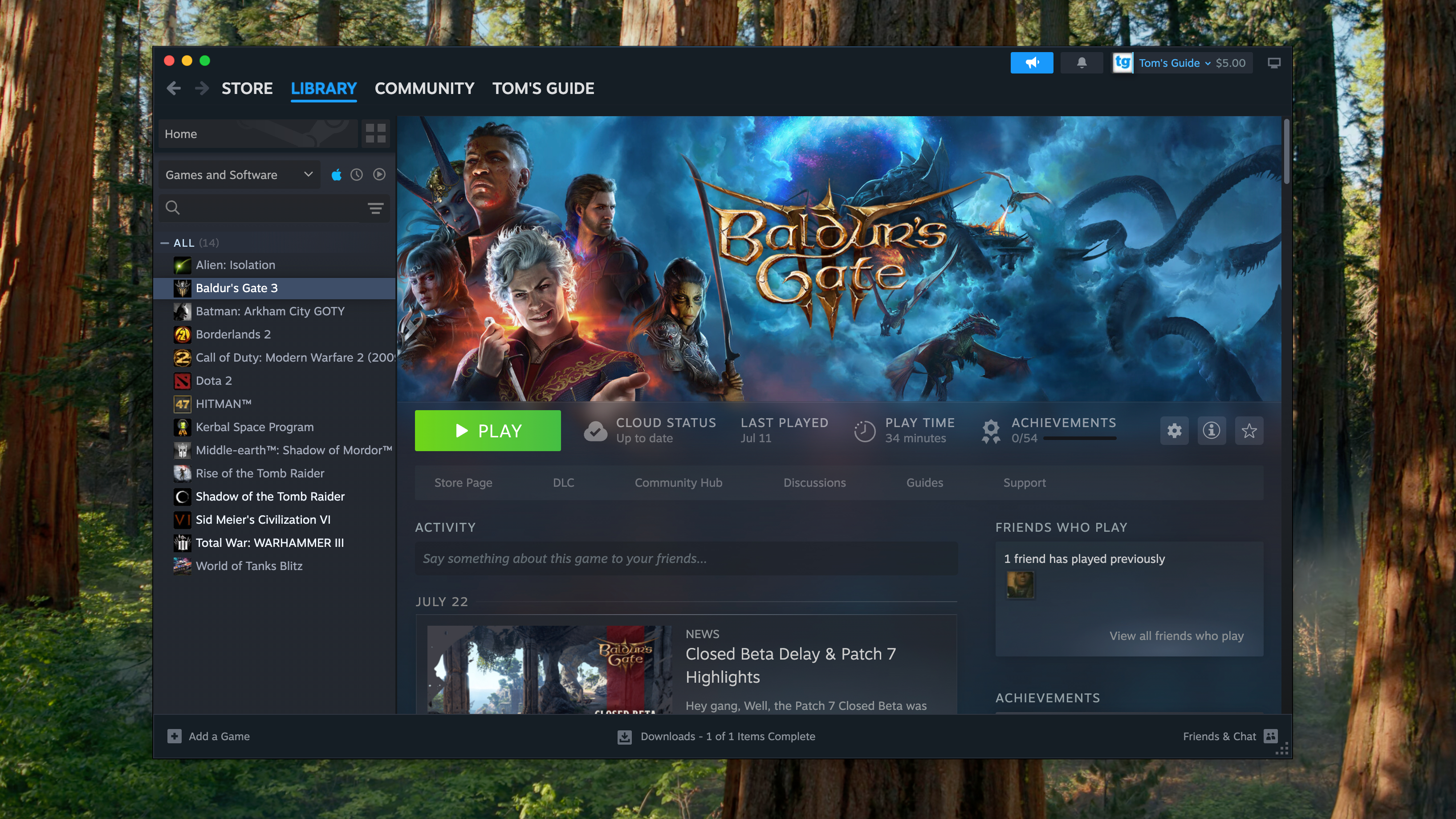
As someone who values the best Steam games pretty much as I appreciate oxygen, Valve has served me up a sad piece of news that has made me oh so salty. Said news revolves around an update to the Steam storefront that all but admits you’re actually not going to own that game sitting in your shopping cart. Instead, you’re essentially leasing it on a long-term loan.
In a story first picked up by, then subsequently followed up on by Engadget, the site has highlighted the fact that the next time you’re about to buy a game on Valve’s digital storefront, you’re not technically purchasing at all.
Recently, the “Your Shopping Cart” page on Steam has been updated with a semi-sneaky boxout on the bottom right of your monitor/one of the best gaming laptops. It’s pretty small, meaning you may need to squint to make out the deliberately "don't look at me" print. So here’s what it says to help reduce the strain on your corneas. “A purchase of a digital product grants a license for the product on Steam. For full terms and conditions, please see the Steam Subscriber Agreement.”
Immediately circling back to said legal agreement between Valve and fans of the best PC games, the most alarming piece of language crops up under the “Licenses” section, which casually drops a sentence that replaces the blood currently flowing through my irritated veins with piping hot lava. “The Content and Services are licensed, not sold. Your license confers no title or ownership in the Content and Services.

Laying down the law
Ouch, Gabe Newell, you just did myself and 123m active Steam users dirty, and you tried to sneak the nasty news under our adoring noses for the incredible PC gaming platform you first created back in September 2003.
Once again, thanks to Engadget for the reporting on this matter. The site has managed to pin Steam’s digital rights ownership issues onto a newly-passed U.S. law.
A month ago, “AB 2426” was a piece of legislation that was approved and signed into North American law by California governor Gavin Newsom. In essence, it forces digital storefronts (like Steam) to make it apparent to customers that when they “buy” a product, they’re only actually purchasing a license that grants them access to whatever form of digital media they’ve just sunk their hard-earned into.
The power of AB 2346 sadly isn’t restricted to video game “ownership”. It also applies to movies, TV shows, music and ebooks that are purchased from a digital storefront. If companies try to sniff their noses up at this ruling, they open themselves up to potential fines on the grounds of hawking digital wares under the ground of false advertising.

Scarily, this isn’t some simple threatening legalize. There are sad real-world ramifications on gamers in the here and now.
Back in March, Ubisoft’s cult open-world racer from 2014, The Crew, was delisted from Steam and had its servers shut down on March 31. For context, online play was at the heart of Ubi’s racer. Valve even went so far as to delete the speedster from their customers' Steam libraries shortly after The Crew went offline for good.
This is scary stuff to me. I’ve been a Steam user since 2004. Currently, I have 284 games in my library. If Gabe and co. suddenly start pulling games from my account due to these digital rights issues, I might just sell what happens to be one of the best gaming PCs and purely buy disc copies of future titles on the PS5 Pro I was lucky enough to pre-order last month, instead.







